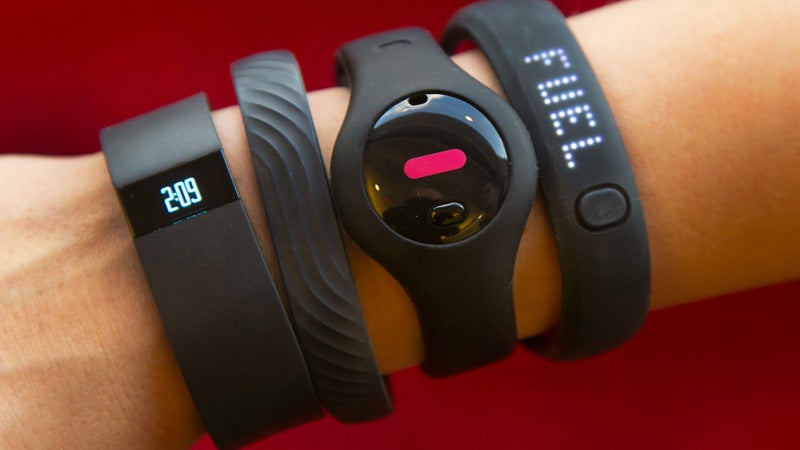The popularity of wearable fitness trackers has exploded in the last two years. There are more of them now than you can shake your Fitbits at. But for all their ubiquity in the consumer mainstream, have they managed to earn a place in the hearts (and on the wrists) of real athletes? Surprisingly yes, but not in the way you’d think.
First, a point of clarification. “Fitness tracker” is an extremely broad term that could be used to describe just about any exercise gadget. For the purposes of this article, we'll use fitness tracker to define a type of non-GPS wearable device that uses accelerometers to count your steps and monitor your activity levels. Think Nike's Fuelband, various Fitbits, the Withings Pulse, the Basis Band, and the Polar Loop.
Generally speaking, these products don't track the kind of workout data that’s useful to dedicated athletes. “I think most athletes—even at the recreational level—are looking for more specific feedback pertaining directly to their training,” says Vince Sherry, co-founder of and owner of . “Most runners want speed and distance.”
And those are two metrics that all of the current fitness trackers absolutely suck at delivering. Because they have no GPS, they effectively count your steps, guess the length of your stride, and then cobble together an estimated distance—which is always way off the mark. Even if the gadgets could accurately measure how far you’ve gone, they don't have a good way to deliver that information to you in real time.
Another Run S.M.A.R.T. Project coach (and Competitor Magazine's 2013 Ultrarunner of the Year), Rob Krar agrees. “You wear a wristband that provides almost no feedback while in use, then have to download to a computer or smart phone to access data? Seems like a gimmick at best and certainly not something I'd recommend to my clients.” Among ultrarunners, he hasn't seen anyone using these wearables, and added that GPS technology dominates that niche of running.
“You wear a wristband that provides almost no feedback while in use, then have to download to a computer or smart phone to access data? Seems like a gimmick at best.”
And yet, some athletes are starting to use the fitness trackers. Why? “Athletes are very number-oriented,” says Stacy Sims, MSc, PhD, an exercise physiologist, nutrition scientist, and the co-founder and CRO-research scientist behind . “From a coach perspective, there is some use to them—more to identify how much people are doing and not counting so as to identify low recovery.”
Recovery is a key component of exercise and improvement, particularly when dealing with athletes, but many people don't get that the extra stuff they do in between workouts contributes to inadequate recovery. “Walking to and from the store is great for health, but that three- to four-mile round-trip is an extra load on the legs.” So Stacy has her athletes wear activity trackers in between workouts to get a better sense of how it all adds up.
But there’s a dark side to all that data. “Having something on your wrist telling you you're not sleeping well can lead to more stress, in turn making it more difficult to sleep,” adds Sherry. “It could be a vicious cycle, especially for a runner who is overly aware of the need for proper recovery.”
Of course, if we open the door to other types of fitness trackers—GPS wrist watches, bands that count strokes as you swim, heart rate monitors, and power meters on bikes—then you’ll find plenty of athletes, from beginners to professionals, adopting the tech, and not just for training sessions. promise to let NFL and soccer teams track their players in real time, regardless of whether they’re in a roofed-in stadium. A coach could see that a player is starting to run slower than normal, and know that it's time to bench them. Future wearables might be able to analyze an athlete's sweat, then relay the information in real time in order for her to address her hydration and nutrition needs.
So what’s the bottom line? As for the common, everyday wearables we're seeing advertized everywhere, well, they're great for helping the average Joe remember to get off the couch every now and then, and they're not bad for analyzing your recovery, as long as you don't get too obsessed with your numbers. In their current state, though, for athletes, they're just no match for the data you can get from a GPS watch (or even a smartphone app). If you're choosing between one or the other to help with your training, GPS is the way to go, even if it just means downloading the latest version of Runtastic on your phone.


